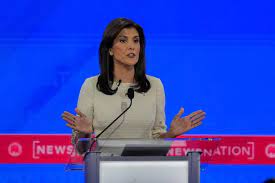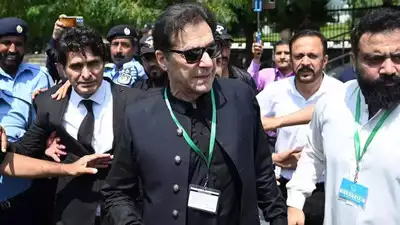The fourth Republican debate showcased a reduced field, with rivals directing their attacks toward an ascendant candidate, Nikki Haley, while the notable absence of frontrunner Donald Trump loomed over the proceedings.

Despite skipping each debate, Trump remains significantly ahead in polls, with his political action committee dismissing the event as a “race for second place.”
The urgency of the debate heightened as candidates, including former UN Ambassador Nikki Haley, former New Jersey Gov Chris Christie, Florida Gov Ron DeSantis, and entrepreneur Vivek Ramaswamy, face a looming deadline to garner support before the Iowa contest.
During the debate, each candidate utilized their time differently, with Christie urging colleagues to denounce Trump, Haley showcasing her foreign policy expertise, DeSantis emphasizing cultural wins in Florida, and Ramaswamy embracing conspiracy. Personal insults were exchanged among the candidates at various points.
Nikki Haley emerged as the primary target, facing pointed attacks despite her momentum surge. DeSantis accused her of flip-flopping on transgender youth treatment, Ramaswamy criticized her board membership at Boeing, accusing her of endorsing progressive business principles. In response, Haley remained composed, humorously acknowledging the attention.
The most significant takeaway was the collective effort to challenge Haley, indicative of her growing influence. In her closing statement, Haley highlighted polls to underscore her as the sole candidate capable of defeating Joe Biden in the general election.






